Cardinal Parolin: ‘Put the Person at the Center’
Address at the Opening of the 2nd International Meeting of Catholic Leaders
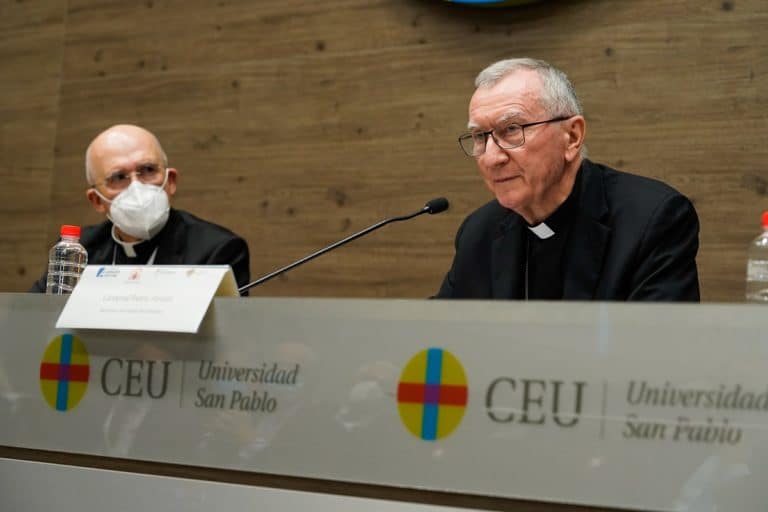
The Vatican Secretary of State, Cardinal Pietro Parolin, opened the 2nd International Meeting of Catholic Leaders, and called for political action that includes “an established anthropological dimension, with the person at the center. Moreover, he said that authority must not be exercised with “a personal, factional or national vision,” but with “an organized system of persons and shared and possible ideas.”
This meeting of Catholics with political responsibilities was held on September 4-5, 2021, at the Saint Paul CEU University of Madrid, Spain.
According to a note published by the Archdiocese of Madrid, the Cardinal began his address with the question: “In a world dominated by crisis, which the pandemic has only accentuated, is a presence oriented to mere service sufficient? Or, rather, must we work so that a humanity, closed in at this moment because of the contagion emergency, may be able to understand the signs of the times and not be satisfied with understanding the reality, perhaps contemplating it, but then succumbing under its weight? “
The Secretary of State was grateful for the organization of these days and thanked the Archdiocese of Madrid and its Archbishop, Cardinal Carlos Osoro, and the Latin American Academy of Catholic Leaders, with the support of the Konrad Adenauer Foundation. In this connection, he said it was an event to “reflect on the way we can work to contribute to the building of the common good” at a time such as this of the pandemic, which affects the whole world,” and in which we have the need to come out of a profound crisis, which is difficult to interpret, which asks in the first place for the reinforcement of social balances, economies, the structure of countries and governments’ capacities.”
Culture of Encounter and Social Friendship
Cardinal Parolin appealed to the close to 70 participant Catholic politicians from 19 countries that, in addition to having “greater commitment, competency, transparency, and professionalism,” they ask themselves the question “what can the Christian vision contribute,” which is “hope and certainty at the same time.” Stemming from this invitation, he highlighted two key aspects of the magisterium of the Church and of Pope Francis for building the common good: the culture of encounter and social friendship, which politicians cannot reduce to “mere propaganda slogans.”
The culture of encounter, he explained, is an attitude that gives diversity “an added value, an enrichment, which enables people to develop — in the words of Evangelii Gaudium –, “the social dimension of their lives, configuring themselves as responsible citizens at the heart of a people, not as a mass dragged by the dominant forces.” “To integrate diverse realities is very difficult and slow; however, it is a safe way, which we must follow, to guarantee solid consistency to political action, so that it is able not only to respond to the crisis but to face it and overcome it,” he stressed.
The Cardinal highlighted that social friendship “is not pure sentiment or a construct of thought,” but “the effect of the best political action, capable of understanding the needs from below and to transfer them collaterally to the decision-making, legislative, economic and social plane. Stemming from this is “concern for those that suffer most, for those that are rejected, becoming almost invisible,” often “victims of policies and economic strategies that only find reference in analytical data, indexes of production or the scale of efficiency.”
Post-Pandemic Recovery for All
According to the Archbishopric’s press release, published to illustrate how political action changes this approximation, Cardinal Parolin referred to vaccination in face of COVID-19: aware that no “one saves himself alone, that it’s only possible to be saved together” — the Pope’s expression –, extended with social friendship is “all action beyond the borders of a community, of a region or of a State,” and “eliminated, is all exclusion, contempt and rigid division in categories that attribute a different dignity, perhaps different fundamental rights or discriminatory treatment.”
In this line, he warned against the risk that the post-pandemic recovery should reach only a few and cause further “marginalization for the majority of countries. He lamented that, particularly in this crisis, “legislative processes are restricted by a functionalism of the moment,” institutions’ decisions are “the fruit of a balance of conflicting interests and almost never convergent,” and “economic interests” only offer “momentary assistance and not one of continuity.” He also criticized <the fact> that key subjects, such as democracy, liberty, justice and unity “are perceived as mere components of the political language” rather than as “inspiring factors of a political program, of institutions’ conduct and of the nation’s social fabric.”
In face of these problems, Cardinal Parolin stressed the need that political action must include a “well-founded anthropological dimension, that puts the person at the center,” that the value of justice be recognized as “social regulator,” and that a “coherent policy” be fostered that, from the local or national political community is able to act up to <reaching> the international dimension.”
In moments, such as the present, there are challenges that need to be “governed,” he added, and stressed that authority must not be exercised with “a personal, factional or national vision,” but with “an organized system of persons and shared and possible ideas” in quest of the common good.
Translation by Virginia M. Forrester
Related
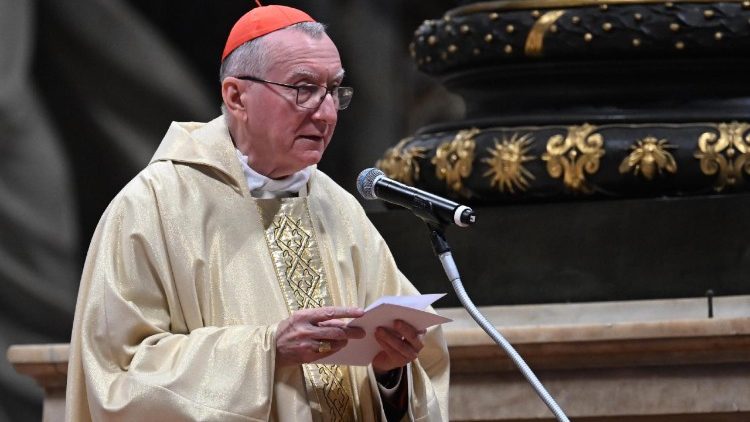
John Paul II: The Tireless Pilgrim Who Continues to Inspire the World
Exaudi Staff
03 April, 2025
2 min
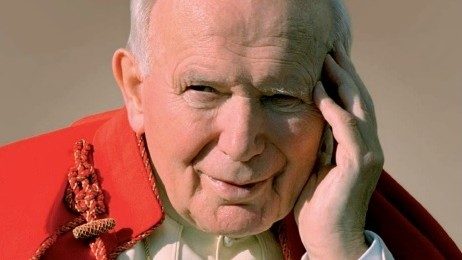
Mass in Commemoration of the 20th Anniversary of the Death of John Paul II
Exaudi Staff
01 April, 2025
1 min
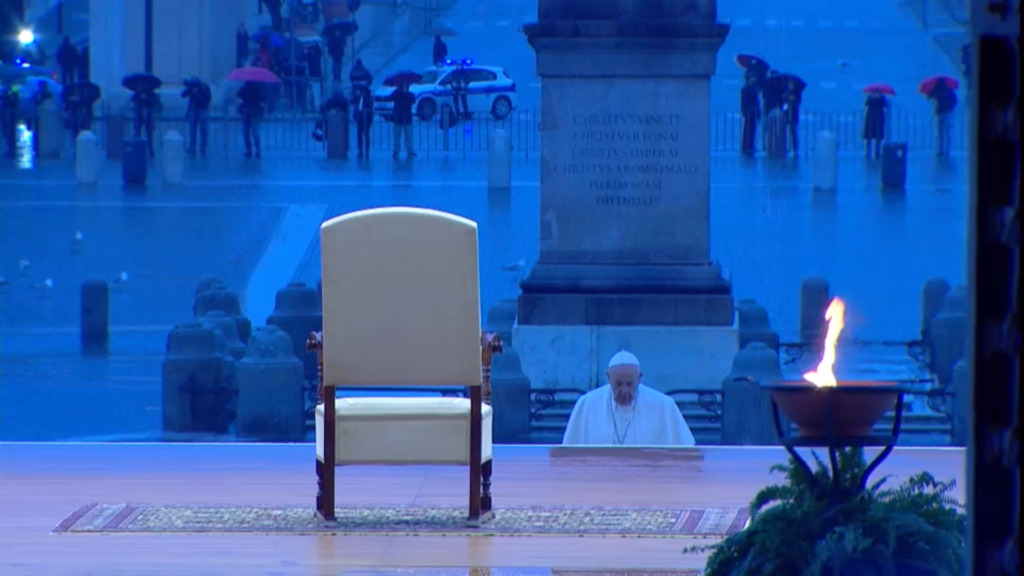
Five Years After Statio Orbis: Hope in the Midst of the Storm
Exaudi Staff
27 March, 2025
2 min
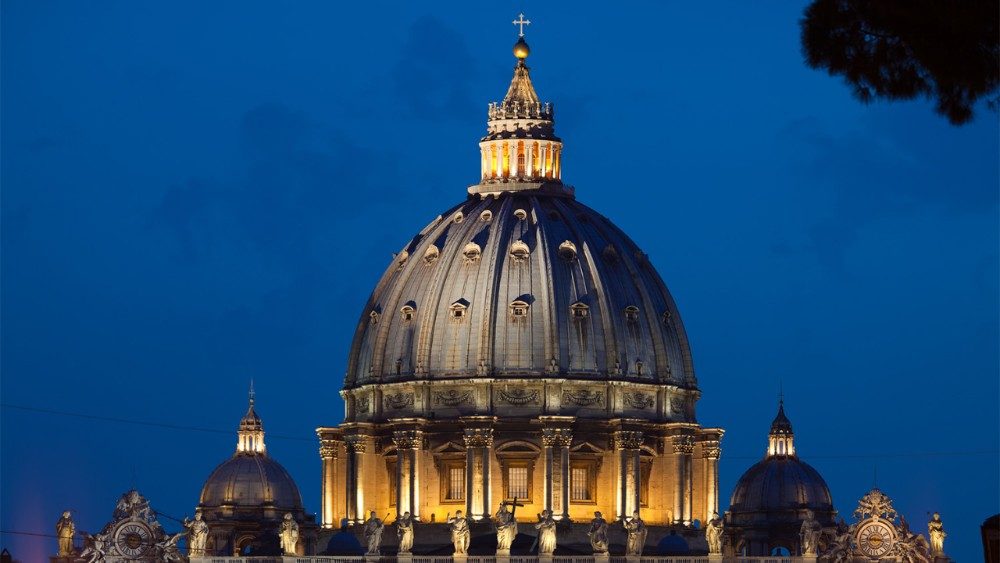
St. Peter’s Dome Will Have New Lighting for Easter
Exaudi Staff
20 March, 2025
1 min
 (EN)
(EN)
 (ES)
(ES)
 (IT)
(IT)

